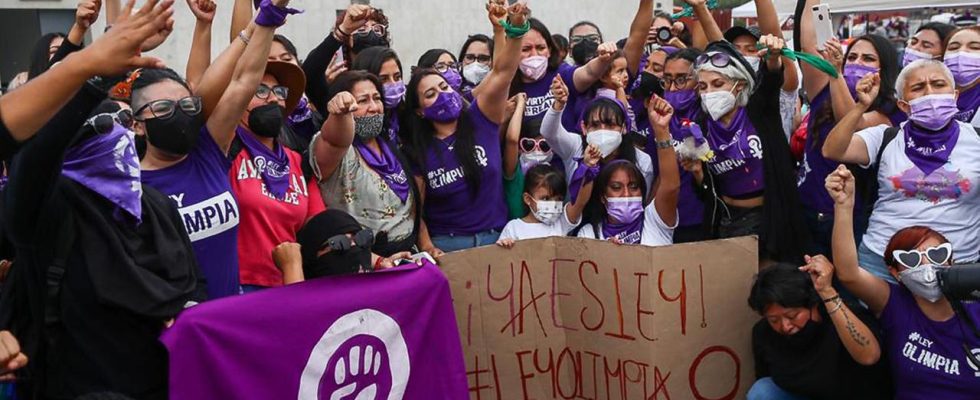Violence against women is part of the bitter everyday life of Mexican women. Another problem that is rarely discussed: attacks on the Internet, such as the distribution of nude photos. But those affected are increasingly resisting.
She tried to kill herself three times, says Olimpia Coral in an interview with the Mexican journalist Mónica de la Garza. When her own boyfriend made intimate photos of her public, her everyday life became unbearable. She was 18 years old at the time. From one day to the next, her private life became public: she was just the slut, the naked woman in the village who allowed herself to be filmed: “Everything that I was – my hair, my mouth, my skin, my name, everything just became associated with the sex video. When I woke up in the morning, I thought to myself: I hope I die today.”
A sex tape destroyed her life
Coral became a hashtag and porn sites published the video. Hundreds of thousands watched the video and shared it. She comes from a small town, Huachinango, in the Mexican state of Puebla. Everyone knew who she was and knew her family, as she says. She stopped going to school and eventually stopped going to work.
It took a while for her to finally pull herself together and try to file a complaint. The officer wanted to see the video, she remembers. He called his colleagues over. In the end there were twelve who leaned over the video. They mocked and made fun. And then the police officer’s statement that she was of age and hadn’t been raped, so he couldn’t do anything, she reports in a Mexican podcast. Once again she was humiliated – blamed for what had happened to her.
2,500 cases of digital violence
The Mexican organization “Luchadoras” tries to help women defend themselves against digital violence when their images are manipulated and videos are distributed. The employees try to raise awareness and give workshops so that women can better protect themselves, explains the team’s psychologist Alicia Reynoso. It is mainly women and young people between the ages of 18 and 25 who are looking for help.
For her, it’s about taking away women’s feelings of guilt. Because the idea is being spread that women themselves are to blame. It is assumed that they uploaded the picture or video in order to seduce men. Many women feel like they deserve it.
According to information from the National Data and Information Bank on Cases of Violence Against Women, 2,515 cases of digital violence were registered between January 2022 and May this year. It is difficult for victims to file a complaint. To date, there have been no corresponding paragraphs in the law books. There are few or no specialized units to investigate cases of digital violence. And that’s exactly what Olimpia Coral is fighting for with other activists.
“Ley Olimpia” – A law bears her name
A law now even bears her name: “Ley Olimpia”. It is now recognized in 29 states and was recently adopted in Argentina. It was also used in a recent case. A student at the National Polytechnic Institute in Mexico City is said to have downloaded photos of fellow students from social networks in order to manipulate them using artificial intelligence and sell them as nude photos. Eight women sued. After great and vehement pressure, this is now the first criminally investigated case in which artificial intelligence was used and the law is applied.
For Coral, this is a very personal success after years of struggle. “I’m no longer the Olimpia from the sex tape. For me, justice is that I changed the algorithm. If you enter my name on the Internet today, you won’t find three hundred porn sites, but three hundred pages about how we change the laws. A Law that allows women to report. Today I am Olimpia – the one with the law.”
Anne Demmer, ARD Mexico City, tagesschau, November 24th, 2023 11:50 p.m

